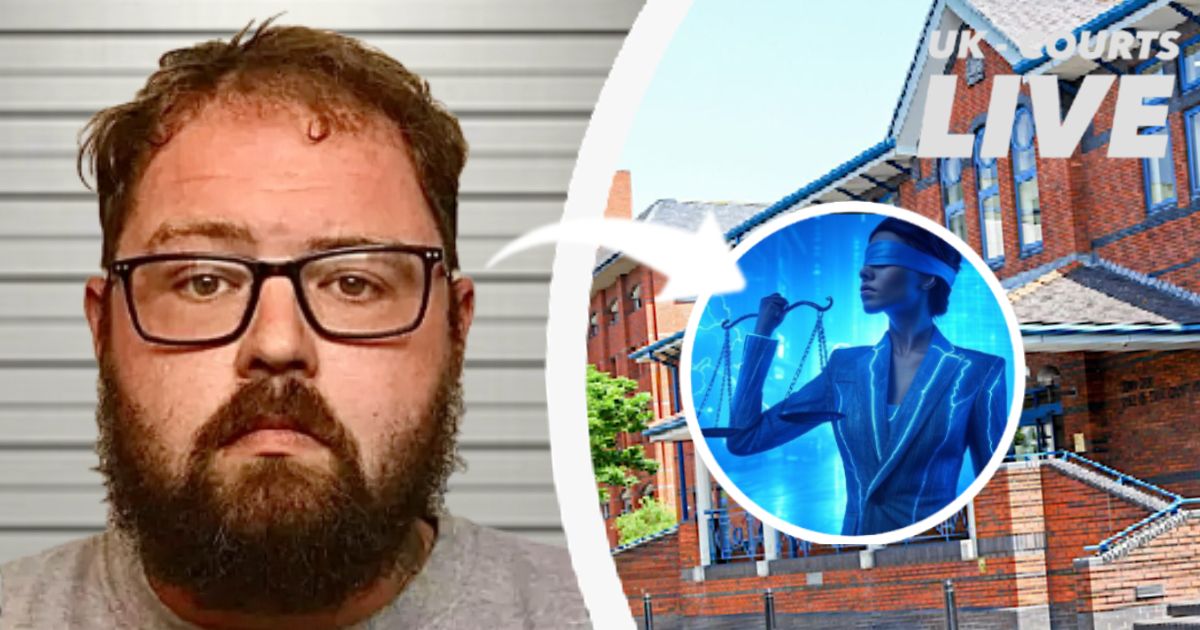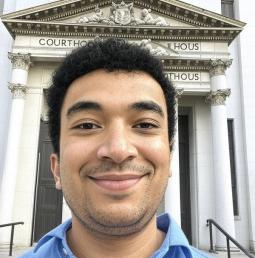BULLISH RIOTER JAILED 30 MONTHS FOR VIOLENT DISORDER
Chanting abuse at police and protesters, Nathan Poole, 32, was jailed after being caught at the forefront of a Hanley riot that spiralled into violent disorder.
A man who chanted “who the f*** is Allah” during a large-scale riot in Stoke-on-Trent has been jailed for 30 months after admitting violent disorder, a charge that carries a maximum penalty of five years’ imprisonment and is among the most serious of the public order offences.
Nathan Poole, 32, of St Bernard’s Road, Knutton, appeared at Stoke-on-Trent Crown Court where the prosecution outlined how he was part of a group of around 300 people who took to the streets of Hanley on 3 August 2024. The Crown said he played an “active role” in the disorder, moving between four separate locations as police in riot gear struggled to maintain order and prevent opposing groups from clashing.
Prosecutor Clare Harris told the court that Poole was visible on several occasions in the front ranks of the crowd, recording on his phone, chanting, and abusing police officers. At Cannon Place he was seen near the police cordon and later outside the town hall, where he shouted “scum” and the anti-Islamic phrase at counter-protesters. Later, in Town Road, he was again at the front of the group as missiles were hurled towards police and others.
Although Poole was not accused of throwing any objects or directly assaulting officers, Judge Richard McConaghy found that his chanting and confrontational stance contributed to the escalation of violence and demonstrated hostility towards Islam. He told Poole: “You were an active participant. You encouraged others. You were bullish. You shouted ‘Who the f*** is Allah’ at the other group, making clear your involvement carried hostility towards Islam.”
The court heard that violent disorder, contrary to section 2 of the Public Order Act 1986, is committed when three or more people use or threaten unlawful violence in a manner that would cause a person of reasonable firmness present at the scene to fear for their safety. It does not require the defendant personally to have used violence, but their conduct must have contributed to the threatening atmosphere and encouraged the wider disorder. It is a serious offence, sitting above affray and below riot, and is reserved for incidents involving significant risk to public order and safety.
Poole was arrested following the disturbances and initially claimed in interview that he had acted lawfully. He later entered a guilty plea. Mitigation put forward by defence counsel Martin Bloor stressed that Poole was employed in a responsible role at a tarmac company, leading junior staff, and that he had not come to the protest intending to engage in violence. He said Poole had attended after hearing about the demonstration in a barber’s shop, believing it would be peaceful, and that he became caught up as events “got out of hand very quickly.”
Mr Bloor told the court: “He did not attack the police, he was not seen to throw missiles, he caused no property damage. He knows that by shouting what he did he became part of that incident and played an active part. He is extremely ashamed of his behaviour and recognises the impact on himself and his family.”
Judge McConaghy emphasised that the scale of the disorder, the presence of weapons, and the number of injuries to police and members of the public meant that substantial custodial sentences were inevitable for those who played a role. He concluded that while Poole was not an instigator, his repeated presence at the forefront of the disorder, combined with abusive chanting, justified a sentence of 30 months’ imprisonment.
Well, that’s all for now. But until our next article, please stay tuned, stay informed, but most of all stay safe, and I’ll see you then.



